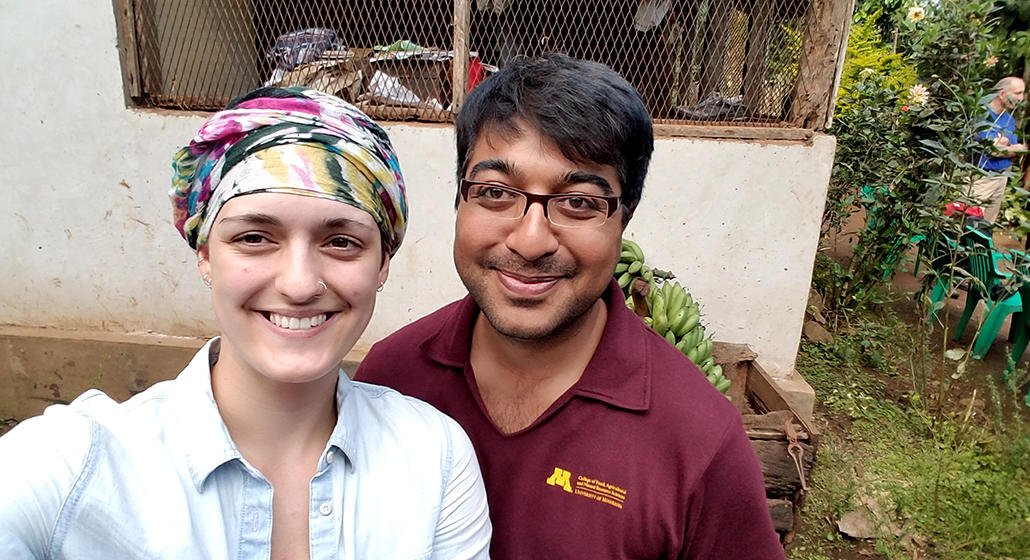CSE students share insights from their internship with Land O'Lakes

Internship takes students to Africa to see first-hand how they can help solve world hunger
September 13, 2017
Mechanical engineering majors Rachel Anderson and Audrey Sebastian where chosen to be part of the year-long Land O’Lakes’ Global Food Challenge Emerging Leaders program for 2016-17. During this time, they worked with Land O’Lakes to find new ways to feed the world using fewer resources. Anderson and Sebastian, along with two other University of Minnesota students and seven others from other partner Universities, traveled to South Africa and Tanzania in June. Their goal was to learn more about hunger, agriculture, and sustainability.
Anderson, who had never travelled abroad before, observed many differences between Tanzania and the U.S. “In Tanzania, I was surprised to see the juxtaposition of high tech with underdeveloped infrastructure. Most people have smartphones and TVs, yet cook over a wood-fire stove in a dirt hut. The culture around agriculture in Tanzania is different than it is in the U.S.,” she says. “[In Tanzania] agriculture is a livelihood for a much larger percent of the population. The goal of the farmer isn't to feed hundreds of thousands of people, it’s to feed their family and their neighbors.”
“Transportation is a challenge,” she continues. “Their road system is underdeveloped and the infrastructure is rough. Many farmers have to travel many miles each day, if not by foot, then by motorcycle, while trying to balance their milk on the back wheel.”
“Without having this opportunity, I would never have known the role engineering plays in agriculture and food security. My experience at Land O'Lakes has taught me how engineering can further develop agriculture in the U.S., but this showed me it can have an even greater impact in other countries.”
While in Tanzania, Sebastian observed the challenges of the farmers: “We saw a lot of small subsistence farms in local villages. Their challenges aren't a whole lot different than ours. The farms there are extremely dependent on factors that are outside their control, such as weather and market access. In the United States, we have access to reliable irrigation systems. In Tanzania, many people cannot afford to irrigate their crops, and so their yield depends entirely on rain.”
In the U.S., dairy and agriculture co-ops play a huge role in the agronomic supply chain distribution. In Africa, she says, “We were fortunate enough to see a private-public partnership where Land O'Lakes is helping educate dairy farmers about the benefits of artificial insemination for their cows. Land O'Lakes is doing a good job of providing education, then removing their influence, in order to allow the business to sustain itself.”
After returning, Sebastian reflected on her trip: “I realized the privilege we have in the United States. We are in a position to help the entire world, and sometimes I feel we aren't doing as much as we should be. I also realized that even when we feel we are living uncomfortably, we still have immensely more than many people around the world, and that's something we should be grateful for.”
This story was adapted from two featured stories on the Building the Future Together website.
